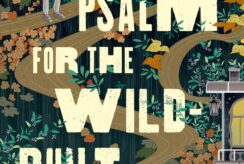MLK Jr. Day celebrates the birthday of Martin Luther King, Jr who advocated for nonviolent activism during the Civil Rights Movement. On behalf of his community, he spoke out against racial discrimination. Here are a selection of books written by Black authors that you can dive into and even bring to the family dinner table.
Democracy in Black: How Race Still Enslaves the American Soul – Eddie S. Glaude Jr.
Part manifesto, part historical and part memoir based on Black experiences in modern day America. The text debates on our (un)conscious racial habits and the “value gaps” ingrained with our societal systems. Glaude Jr. proposes that the Civil Rights Movement never ended, that Black politics should be pushed to the frontlines. He covers our pandemic of racism that we can resonate or sympathize for, critically think on, and bring to the table of politics and family dinners.
If you want a mix of the personal and the definite, you will enjoy flipping through this one.
HoodWitch – Faylita Hicks
At BGSU’s 2023 Winter Wheat, Hicks presented their newly published poetry collection. They dive into the Black experience and how it overlaps with their own queer experiences. We had the opportunity to hear from Hicks and how much of their life is told through poetic images and sounds without needing to be out-right said. They spoke on intimate times in college and jail and childbed. They process these traumas through poetry for themselves and their communities. The format, word-play, and sounds are experimental because it is meant to be read aloud. It interacts with our society and its social media platforms and how they perform in activism and what that means for the Black and queer and intersecting communities. By the end, Hicks craft of language evokes these overwhelming feelings from empowerment to grievances.
The content is dense, so I would recommend sitting down with a (feline) friend and hot tea to process the consequential emotions.
A Mercy – Toni Morrison
Morrison not only switches between character perspectives but also timelines. Her fictional novel covers colonial America (17th century), familial connections and “resistance at the site of marginalization” – bell hooks. We follow characters from European, African, and Native American descent as they interact with each other and within binary systems. The mother-daughter relationships are explored with nuance. The consequential grey characters evoke emotions from anger to (S)/sorrow. Sorrow’s character is dealt the hand of mental illnesses, displacement, and traumatic births; but as she grows into a woman, we grow with her to define “mercy” for ourselves. Morrison proposes that mothers are left to choose paths of mercy—they cannot choose between that of freedom or control as those options would erase the mother’s and child’s existence. This novel presents a nonlinear timeline as we can observe the aftermath and consequential roots in our societal systems today.
The page count is just under 200, but the complexity of its nature will steal your time and have you thinking about this one for days on end.
Caste: The Origins of Our Discontents – Isabel Wilkerson
This nonfiction book theorizes how America has a caste system invisible to the human eye. Wilkerson organizes this piece by eight pillars that categorize and define civilians. These pillars represent our systematic discriminations against minority groups, especially highlighting the Black community. The systems unconsciously influence our behaviors and values beyond that of race, class, etc. to deeper roots of built-in discriminations. Our lives, ethics, and result of a nation link between caste systems of America, India, and Nazi Germany. Therefore, the term “racism” is much more surface level to the systematic and foundational oppression that the Black community faces in today’s America.
Wilkerson is also the first African-American woman awarded the Pulitzer Prize in journalism.
